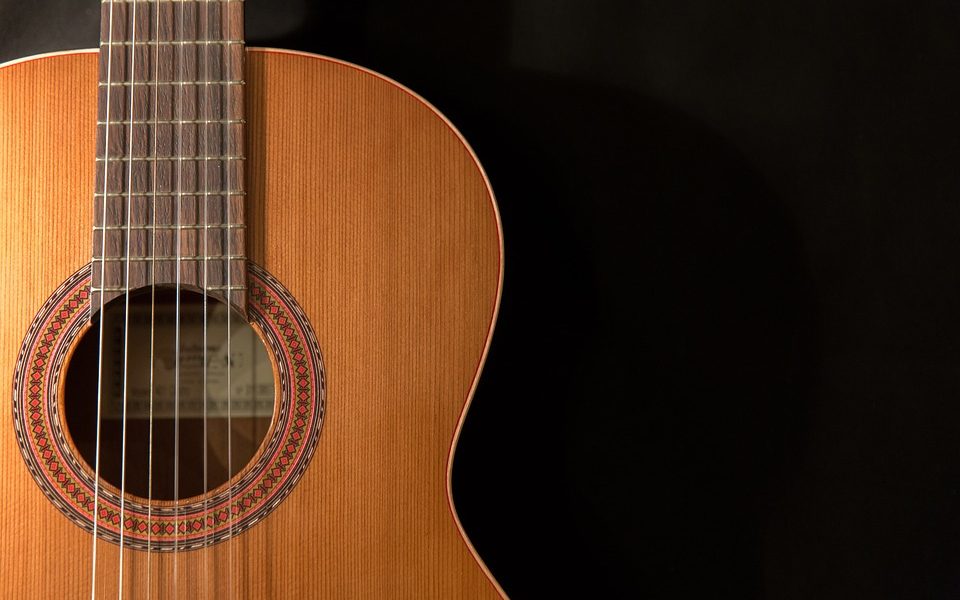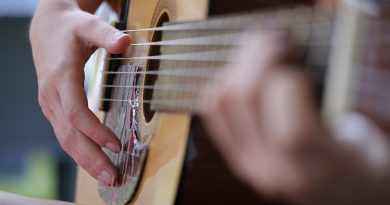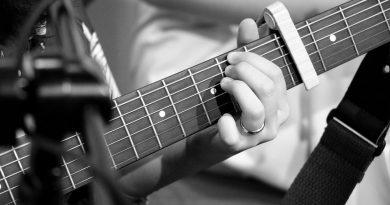Mastering Guitar Chords: A Guide to Enhancing Dexterity
Mastering Guitar Chords: A Guide to Enhancing Dexterity
Introduction
Playing the guitar is a rewarding experience, but it requires time, dedication, and practice to master the instrument. One essential aspect of becoming a proficient guitarist is mastering guitar chords. Chords are the building blocks of music, and having a solid understanding of them is crucial for any aspiring guitarist. In this guide, we will discuss tips and techniques to enhance your dexterity and master guitar chords.
Understanding Chords
Chords are a group of notes played together to create harmony in music. They are typically made up of three or more notes and are the foundation of most songs. Chords can be major, minor, diminished, augmented, or suspended, with each type conveying a different emotion or mood in a song. As a guitarist, it is important to have a strong grasp of different types of chords and their variations.
Developing Finger Strength
One of the key challenges in mastering guitar chords is developing finger strength and flexibility. Playing chords requires pressing down on the strings with your fingertips, which can be physically demanding, especially for beginners. To improve your finger strength, try doing exercises such as finger stretches, practicing scales, or using a hand grip strengthener. By strengthening your fingers, you will be able to play chords more effectively and with greater precision.
Practicing Proper Finger Placement
In addition to finger strength, proper finger placement is crucial for mastering guitar chords. Each finger should be assigned to a specific fret and string to ensure clean and accurate chord voicings. Practice placing your fingers on the fretboard in the correct positions and strumming each string to ensure that all notes ring out clearly. Pay attention to the angle of your fingers and make adjustments as needed to improve your playing technique.
Learning Common Chords
There are thousands of chords that you can learn on the guitar, but starting with common chords is essential for building a strong foundation. Some of the most basic and widely used chords include C, G, D, A, and E major, as well as their minor counterparts. Practice transitioning between these chords smoothly and efficiently to improve your chord changing speed and accuracy. Once you have mastered these basic chords, you can move on to more advanced chord shapes and progressions.
Utilizing Chord Charts and Diagrams
Chord charts and diagrams are valuable tools for learning and mastering guitar chords. These visual aids provide a visual representation of where to place your fingers on the fretboard to form different chords. Familiarize yourself with chord charts and diagrams for various chord shapes and practice playing them on the guitar. By using these resources, you can quickly learn new chords and expand your repertoire of chord voicings.
Experimenting with Different Fingerings
While there are standard fingerings for most chords, experimenting with different fingerings can help you find more comfortable and efficient ways to play them. Try out alternative fingerings for common chords and see how they affect your playing. You may discover new fingerings that work better for you and improve your dexterity and overall guitar technique.
Practicing Regularly
Consistent practice is essential for mastering guitar chords and enhancing dexterity. Set aside dedicated practice time each day to work on your chord playing skills. Focus on playing chords cleanly, accurately, and with proper technique. Practice transitioning between chords smoothly and quickly to improve your overall playing ability. By practicing regularly, you will build muscle memory, develop finger strength, and become a more proficient guitarist.
Conclusion
Mastering guitar chords is a fundamental aspect of becoming a skilled guitarist. By understanding chords, developing finger strength, practicing proper finger placement, learning common chords, utilizing chord charts and diagrams, experimenting with different fingerings, and practicing regularly, you can enhance your dexterity and improve your chord playing skills. With dedication and perseverance, you can elevate your guitar playing to new heights and become a master of chords.






